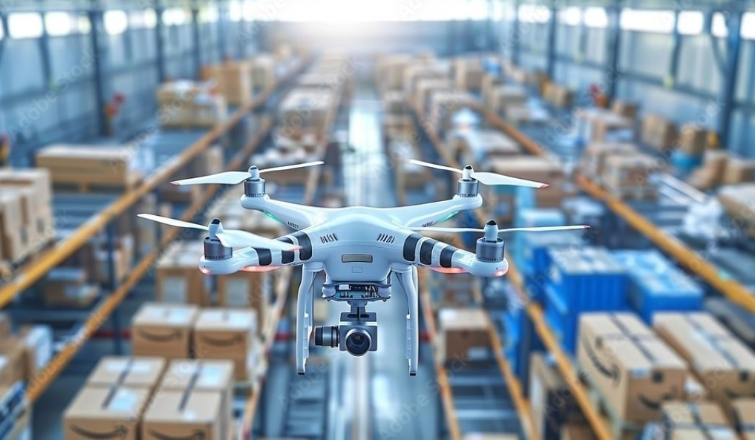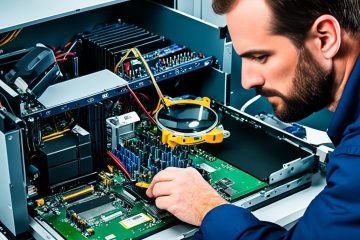In the rapidly evolving landscape of manufacturing, efficiency, accuracy, and adaptability are paramount.
Enter Robotic Process Automation (RPA), a groundbreaking technology that is revolutionizing traditional manufacturing processes.
By automating repetitive tasks and streamlining workflows, RPA offers manufacturers a competitive edge in today’s dynamic market.
This article delves into the transformative power of RPA in manufacturing, exploring its key benefits, implementation challenges, and prospects.
Understanding Robotic Process Automation
In the dynamic world of manufacturing, comprehending the role of Robotic Process Automation (RPA) is crucial for unlocking its transformative power.
RPA, leveraging software bots, not only streamlines traditional workflows but also spearheads efficiency in manufacturing operations.
From its inception in administrative tasks to its seamless integration across production processes, RPA in manufacturing signifies a profound evolution reshaping the industry’s landscape for the better.
Defining RPA
Robotic Process Automation involves the deployment of software robots to execute rule-based tasks previously performed by humans.
These bots interact with digital systems and applications, mimicking human actions to automate processes seamlessly.
Evolution of RPA in Manufacturing
Initially utilized in administrative functions, RPA has now found widespread adoption across manufacturing operations.
From assembly line optimization to inventory management, RPA is reshaping the industry’s operational landscape.
Key Areas of Transformation
Within the manufacturing realm, pivotal shifts are occurring as Robotic Process Automation (RPA) takes center stage.
From refining production workflows and bolstering quality control to optimizing supply chain management and predictive maintenance, these transformative areas redefine the industry’s operational landscape.
1. Streamlining Production Processes
RPA plays a pivotal role in optimizing production workflows, from raw material procurement to product assembly.
Example: Automated Inventory Management
Through automated inventory management systems, RPA monitors stock levels in real-time, triggers replenishment orders, and facilitates seamless supply chain management. This results in reduced downtime and enhances operational efficiency.
2. Enhancing Quality Control
Quality control is critical in manufacturing to ensure product consistency and customer satisfaction. RPA contributes to this aspect by automating quality inspection processes.
Example: Automated Visual Inspection
Integrated with machine learning algorithms, RPA enables automated visual inspections, identifying defects with precision and speed. By minimizing human error, manufacturers can maintain high-quality standards while accelerating production cycles.
3. Optimizing Supply Chain Management
Efficient supply chain management is imperative for meeting production deadlines and minimizing costs.
RPA streamlines various supply chain tasks, such as order processing and logistics management.
Example: Automated Order Processing
By automating order processing workflows, RPA accelerates order fulfillment processes while minimizing errors and delays. This results in improved customer satisfaction and reduces operational costs.
4. Facilitating Predictive Maintenance
Predictive maintenance is key to preventing equipment failures and minimizing downtime. RPA aids in this endeavor by analyzing data from sensors and predicting maintenance requirements.
Example: Predictive Maintenance Analytics
RPA algorithms analyze data from IoT sensors installed on manufacturing equipment to forecast maintenance needs. By preemptively addressing issues, manufacturers can maximize operational uptime and extend equipment lifespan.
Benefits of RPA in Manufacturing
In the dynamic manufacturing landscape, Robotic Process Automation (RPA) offers many advantages.
From enhancing operational efficiency and cutting costs to ensuring precision and compliance, the benefits of RPA are reshaping manufacturing processes for the better.
1. Increased Efficiency
By automating repetitive tasks, RPA frees up human resources to focus on strategic initiatives, thus boosting overall operational efficiency.
2. Cost Savings
RPA reduces labor costs associated with manual tasks and minimizes errors, resulting in significant cost savings for manufacturers.
3. Improved Accuracy and Consistency
Software robots execute tasks with precision and consistency, reducing the likelihood of errors and ensuring uniformity across production processes.
4. Enhanced Compliance
RPA ensures adherence to industry regulations and standards by maintaining meticulous records and executing tasks in accordance with predefined protocols.
Challenges of Implementing RPA
Implementing Robotic Process Automation (RPA) presents manufacturers with a transformative opportunity, yet it comes with its share of hurdles.
From managing initial costs and navigating organizational changes to addressing data security concerns, overcoming these challenges is crucial for successful RPA adoption.
1. Initial Implementation Costs
While the long-term benefits of RPA are substantial, the initial investment required for implementation, including software licensing and employee training, can be significant.
2. Change Management
Introducing RPA necessitates organizational changes and employee reskilling. Effective change management strategies are essential to mitigate resistance and ensure successful adoption.
3. Data Security Concerns
Automating processes involves handling sensitive data, raising concerns about data security and privacy.
Manufacturers must implement robust security measures to safeguard against potential breaches.
Prospects of RPA in Manufacturing
As Robotic Process Automation (RPA) continues to evolve, its future in manufacturing holds immense promise.
Integration with AI and Machine Learning expanded use cases, and enhanced human-robot collaboration are key factors shaping the transformative potential of RPA in the manufacturing sector.
1. Integration with AI and Machine Learning
The convergence of RPA with Artificial Intelligence (AI) and Machine Learning (ML) will unlock new possibilities, enabling bots to perform complex tasks and make data driven decisions autonomously.
2. Expanded Use Cases
As RPA technology matures, its applications in manufacturing will extend beyond routine tasks to encompass advanced functions such as predictive analytics and customer service automation.
3. Human-Robot Collaboration
The future of manufacturing will witness increased collaboration between humans and robots, with each leveraging their strengths to optimize productivity and innovation.
Conclusion
Robotic Process Automation is a game-changer for the manufacturing industry, driving efficiency, cost savings, and quality improvements.
Despite implementation challenges, the benefits of RPA far outweigh the obstacles. As manufacturers embrace RPA and integrate it with emerging technologies, they will gain a competitive advantage in an increasingly digitalized landscape.
The journey towards Industry 4.0 is underway, with RPA leading the transformation of manufacturing processes into agile, responsive, and future-ready operations.



